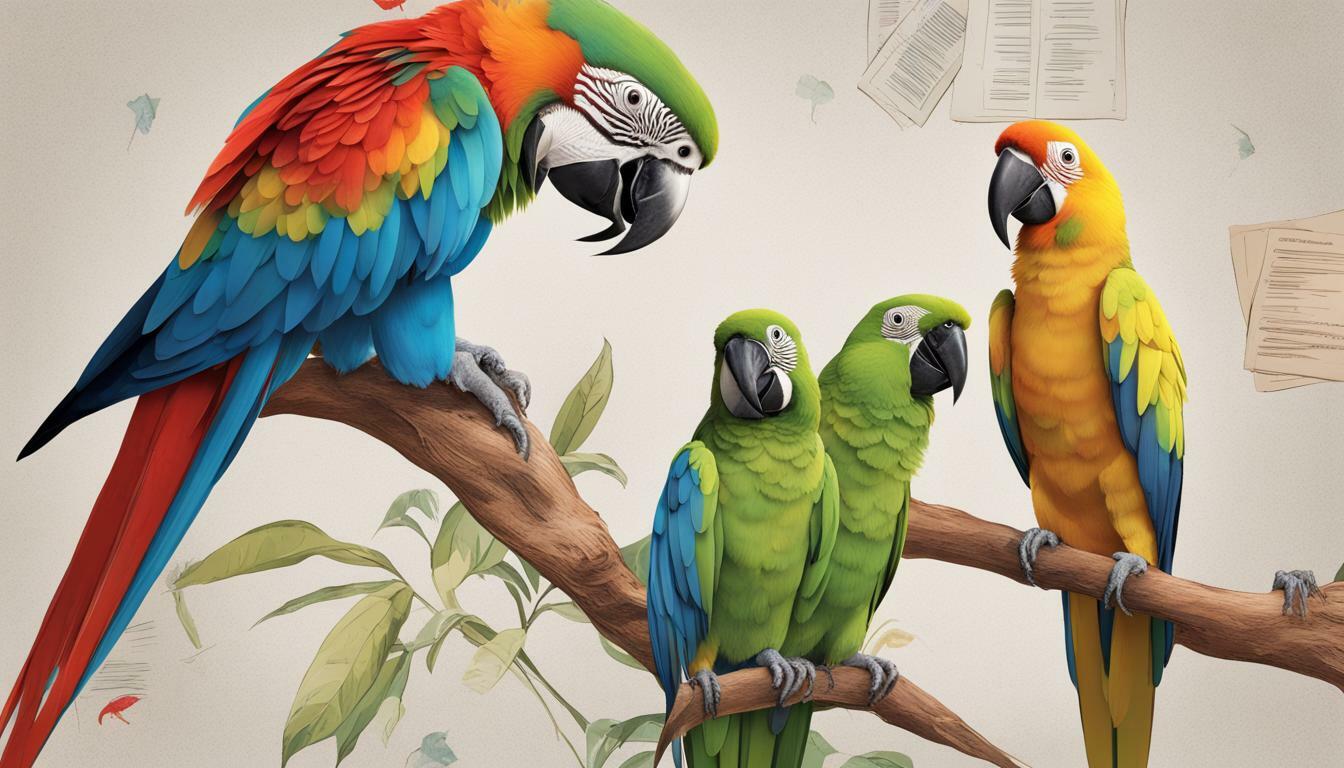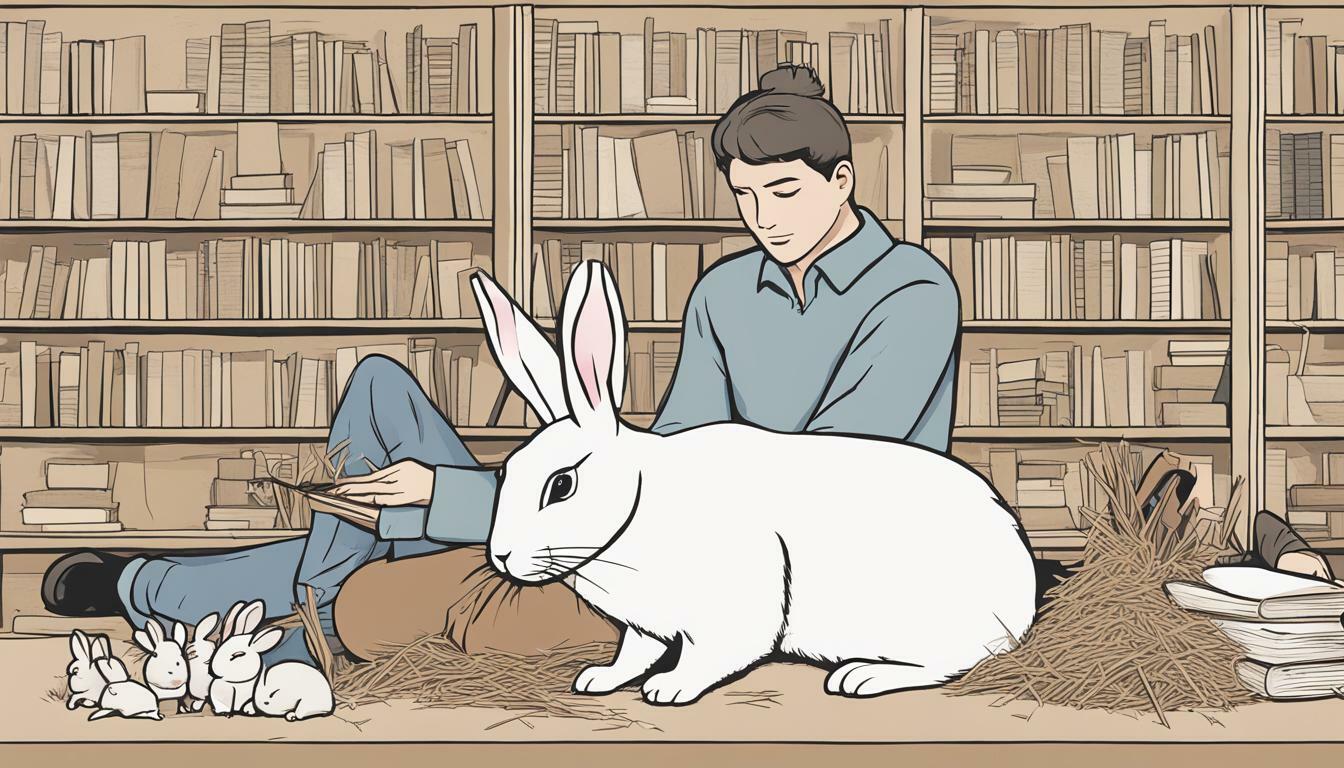Do Parrot Bites Hurt? Uncover the Truth

Table of content:
As a parrot owner or caregiver, it’s natural to wonder if parrot bites hurt. The truth is, parrot bites can be painful, and the pain level can vary depending on the severity of the bite and the location on your body.
Parrots have strong beaks and can exert a lot of pressure, so even a minor bite can cause discomfort. Additionally, some parrot species have sharp beaks that can easily break the skin.
Key Takeaways:
- Parrot bites can be painful.
- The severity of the bite and location on your body can affect the pain level.
- Parrots have strong beaks that can easily break the skin.
Exploring Parrot Bite Severity
Parrot bites can range from mild to severe, depending on the size of the parrot and the force of the bite. Handling a bite from a large parrot, such as a macaw or cockatoo, can result in severe injuries such as deep cuts and bone fractures. However, bites from smaller parrots like parakeets or conures are typically less severe.
If you experience a parrot bite, it’s important to seek medical attention if the wound is deep, bleeding profusely, or shows signs of infection. To avoid parrot bites, it’s important to understand your parrot’s behavior and body language.
Managing Parrot Bites
To manage parrot bites, it’s important to understand why your parrot may bite. Parrots may bite if they feel threatened, stressed, or uncomfortable. Additionally, parrots may bite if they are in pain or if they are not properly socialized.
If your parrot bites you, it’s important to remain calm and avoid punishing your parrot. Instead, remove yourself from the situation and give your parrot some space. If your parrot is biting frequently, it may be helpful to seek the advice of a professional bird behaviorist to address any underlying issues.
Preventing Parrot Bites
To prevent parrot bites, it’s important to handle your parrot gently and to read their body language to avoid situations that may cause them to feel threatened or uncomfortable. It’s also important to provide your parrot with plenty of enrichment and socialization to avoid stress or boredom.
Additionally, it’s important to keep your parrot’s beak trimmed to prevent them from causing accidental injuries while playing or exploring. If you have young children or other pets in the home, it’s important to supervise interactions with your parrot to prevent accidental injuries.
Treating Parrot Bites
If you ever get bitten by a parrot, the first thing you need to do is stay calm. Parrot bites can be painful, but they rarely cause serious injury. Here are some tips on how to treat a parrot bite:
- Apply first aid: Wash the bite area with soap and water to reduce the risk of infection. Use a clean towel to apply pressure to the wound until the bleeding stops. If the bite is deep and bleeding heavily, seek medical attention immediately.
- Manage the pain: Depending on the severity of the bite, you may experience pain and swelling. You can apply a cold pack or take over-the-counter pain medication to help manage the pain and reduce swelling.
It’s important to keep an eye on the bite area and watch for signs of infection, such as redness, swelling, or pus. If you notice any of these symptoms, contact your healthcare provider.
Parrots are intelligent creatures, and they may bite for a variety of reasons, including fear, territoriality, or discomfort. If your parrot bites you, it’s important to assess the situation and try to determine the cause of the behavior. Once you understand why your parrot is biting, you can take steps to prevent future bites.
Tips for preventing parrot bites:
- Learn to read your parrot’s body language and avoid handling them if they appear agitated or uncomfortable.
- Avoid making sudden movements or loud noises around your parrot.
- Provide your parrot with plenty of toys, perches, and other forms of stimulation to reduce boredom and frustration.
- Use positive reinforcement techniques, such as rewards and praise, to encourage good behavior.
By understanding your parrot’s behavior and taking steps to prevent bites, you can build a positive relationship with your bird and enjoy many happy years together.
Precautions for Parrot Bites
While it’s true that parrot bites can be painful, there are straightforward steps you can take to prevent them. Here are a few essential precautions to keep in mind:
- Approach slowly: Parrots are prey animals, and sudden movements can startle them. Always approach your bird slowly and calmly to avoid triggering a defensive reaction.
- Pay attention to body language: Parrots often give warning signs before they bite. Flattened feathers, pinning eyes, and a raised beak are typical indicators of an agitated bird. If your bird is displaying these behaviors, it’s best to back off and give them space.
- Use protective gear: If you work with parrots regularly, consider wearing gloves and long sleeves to protect your skin from bites.
- Teach your bird positive behaviors: Parrots are intelligent animals that respond well to positive reinforcement. By teaching your bird to trust you and rewarding good behavior, you can build a stronger bond and minimize the risk of bites.
By taking these simple precautions, you can enjoy a safe and rewarding relationship with your parrot. Remember, parrot bites are usually a reaction to fear or stress, so creating a comfortable and secure environment for your bird is crucial for maintaining their emotional well-being. If you do get bitten, seek medical attention if necessary and don’t let it discourage you from bonding with your feathered friend.
Understanding Parrot Biting Behavior
Parrots are known for being charismatic and affectionate pets, but they also have a reputation for biting their owners. Understanding why parrots bite is crucial to prevent injury and promote a healthy relationship with your feathered friend.
Parrots may bite for a variety of reasons. One common cause is fear or anxiety. If your parrot feels threatened or uncomfortable, it may bite to protect itself. Parrots may also bite as a form of communication, such as when they are trying to establish dominance or indicate that they are not in the mood for interaction.
Another reason parrots may bite is due to hormonal changes, especially during breeding season. Parrots may become more territorial and aggressive during this time, which can lead to biting. It’s important to be aware of your parrot’s behavior and mood to avoid accidental bites.
Parrots also have a natural instinct to explore their surroundings with their beak. This can sometimes result in accidental bites, especially if they mistake your finger for a toy or food. It’s important to train your parrot and provide adequate toys to prevent boredom and potential biting behavior.
Understanding your parrot’s body language and behavior can help you avoid bites. Signs of aggression may include fluffed-up feathers, dilated pupils, and a raised tail. If you notice these signals, it’s best to give your parrot space and avoid interacting until they calm down.
Positive reinforcement is key to promoting trust and preventing biting behavior. Rewarding your parrot with treats and praise for good behavior can help build a strong bond and encourage positive interactions. Consistency and patience in training are essential for creating a safe and enjoyable environment for you and your parrot.
Building Trust and Positive Reinforcement
Building trust with your parrot is essential in preventing bites and creating a positive training environment. When your parrot trusts you, they are more likely to listen to you and less likely to feel threatened by your presence.
To build trust with your parrot, spend time with them every day. Talk to them in a calm and soothing voice, and offer them treats. Sit near their cage and read a book or watch TV. Over time, they will become more comfortable around you and more willing to interact with you.
Positive reinforcement is another effective way to build trust with your parrot. When they exhibit good behavior, such as stepping onto your hand or saying a new word, reward them with praise and treats. This will encourage them to repeat the behavior and strengthen the bond between you.
Remember to be patient and consistent in your training. Building trust takes time, and every parrot is different. With patience and positive reinforcement, you can create a strong bond with your parrot and prevent future bites.
Conclusion
Parrot bites can be painful and cause injuries, but they can also be prevented and managed effectively. By understanding parrot behavior and taking necessary precautions, you can minimize the risk of getting bitten. However, accidents can still happen, and it’s important to know how to handle parrot bites when they occur.
If you do get bitten, stay calm and seek medical attention if necessary. Parrot bites can become infected and require prompt treatment. Knowing how to treat a parrot bite and having a first aid kit handy can make all the difference in preventing further harm.
Building trust with your parrot through positive reinforcement can also help reduce the likelihood of getting bitten. By understanding your parrot’s behavior and using training techniques that focus on positive reinforcement, you can establish a strong bond with your bird and foster a safe and secure environment for both of you.
Remember, with proper care and attention, your parrot can be a faithful and loving companion for years to come.
Welcome. I’m Adreena Shanum, the proud owner of this website, and I am incredibly passionate about animals, especially poultry. I founded adreenapets.com as a labor of love, stemming from my desire to share my knowledge and experiences with poultry enthusiasts worldwide.




